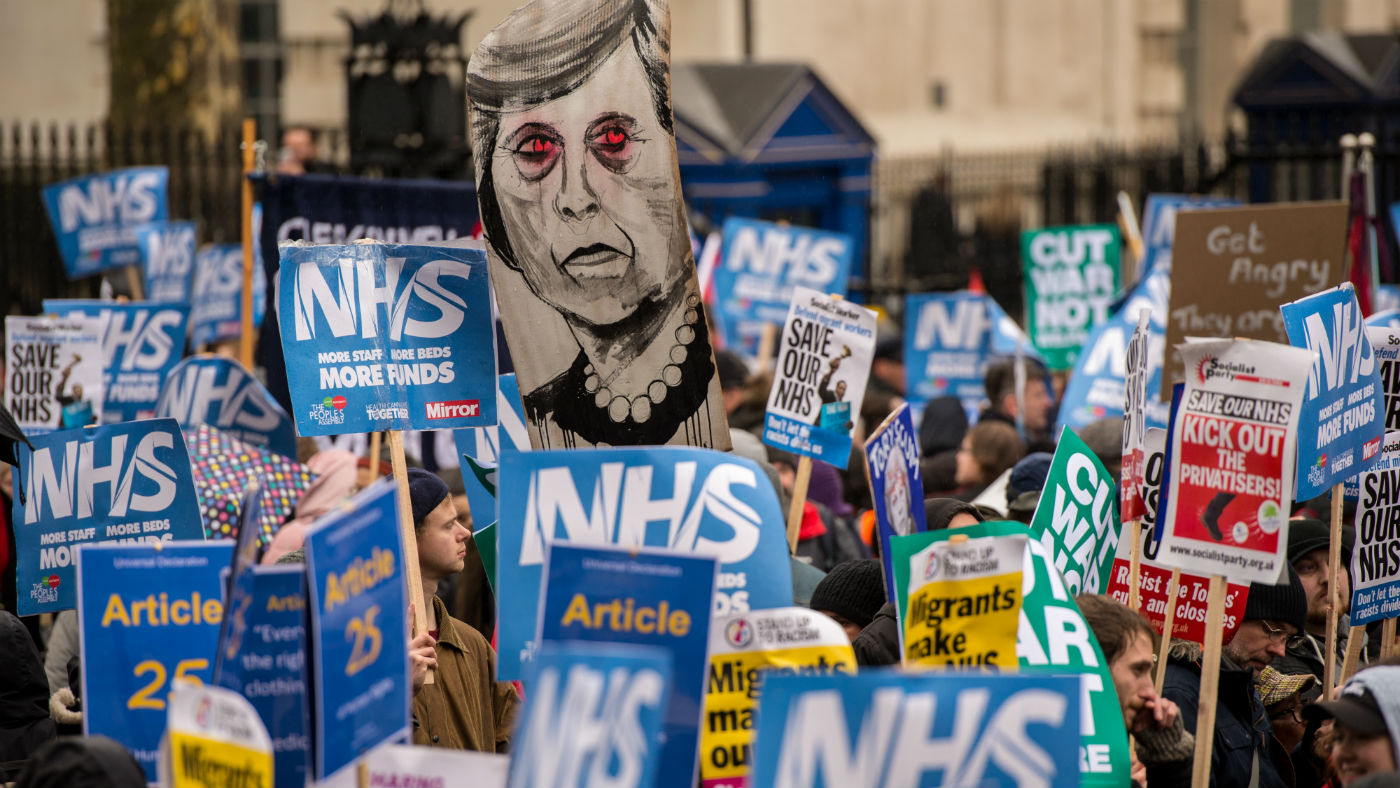Is it worth paying for private medical insurance?
Shelling out for private healthcare can help beat NHS queues but may be pricey without medical cover

A free daily email with the biggest news stories of the day – and the best features from TheWeek.com
You are now subscribed
Your newsletter sign-up was successful
As NHS waiting lists hit record highs and GP surgery closures makes accessing routine healthcare even harder, a growing number of people are going private.
A recent YouGov survey of almost 9,000 Britons found that one in eight had used private healthcare in the past year, a third of whom had done so for the first time ever. According to latest data from the Association of British Insurers, around 5.5m people were covered by individual and group PMI policies in 2021.
And demand is continuing to surge as patients nationwide seek “to beat long queues for operations, GP appointments and dental work”, said The Telegraph. Latest NHS England figures show that more than 7m people were waiting to start routine hospital treatment as of the end of February, the highest total since records began.
The Week
Escape your echo chamber. Get the facts behind the news, plus analysis from multiple perspectives.

Sign up for The Week's Free Newsletters
From our morning news briefing to a weekly Good News Newsletter, get the best of The Week delivered directly to your inbox.
From our morning news briefing to a weekly Good News Newsletter, get the best of The Week delivered directly to your inbox.
Here is what you need to know if you are thinking about going private.
What is private healthcare?
Most UK residents are entitled to free healthcare from the NHS, but private healthcare “gives you a choice in the level of care you get, and how and when it’s provided”, said MoneyHelper.
Accessing private healthcare is far from cheap, however. For example, the cost of hip or knee replacement surgery is likely to exceed £10,000. PMI is a way of spreading those expenses over time so that if you do choose to go private, “it doesn’t break the bank”, said Unbiased. These policies can cover treatment if you are ill or injured, but may not pay out for certain health conditions.
What does private healthcare cover?
Health insurance is designed to pay for private treatment of medical conditions that respond quickly to treatment, as well as elective surgery and medical tests.
A free daily email with the biggest news stories of the day – and the best features from TheWeek.com
What you are covered for depends on your provider, but most policies will cover hospital accommodation and nursing care, as well as some level of cover for outpatient treatment and consultations.
How much does private healthcare cost?
As with any insurance policy, you pay for PMI through a monthly premium. The average yearly premium for private health insurance is around £1,500, according Unbiased. This works out to about £125 a month, “but lots of people pay much less”, said the comparison site.
The amount you pay will depend on your insurer, what’s covered in your policy, and your individual circumstances such as your age, personal and family medical history, lifestyle and where you live.
Premiums typically rise as you get older, but you can cut costs by “tweaking the cover”, Which? said. For example, policies that limit how many hospitals you can choose from, or that only offer support when the NHS can’t treat you within six weeks, are generally cheaper.
Agreeing to pay a higher excess can also reduce your premiums, and opting out of outpatient cover such as private consultations and scans “can take hundreds off the annual premium”, the consumer group added.
Is private healthcare worth the money?
Private healthcare is “considered a luxury by many”, said Unbiased, as the NHS provides comprehensive levels of care and treatment. But some people opt to go private in order to bypass NHS waiting lists “and perhaps to have more flexibiliy over their treatment, such as receiving care at home”.
Before paying out, “you should always get quotes from a number of providers as prices can vary“, said MoneySavingExpert. Check for exclusions from policies too.
If you or your partner are employed, the financial website continued, it's also “always worth checking if your employer(s) offer individual or family private health insurance”, as “firms' bulk-buying power often means they can negotiate big discounts”.
Just bear in mind that if you make a claim for treatment and subsequently leave your employer, you may not be able to continue your membership with the healthcare firm on the same terms. And “you may then be stuck without being able to get a new insurer to cover an existing condition (or need to pay huge premiums every month to keep it covered)”.
As an alternative to health insurance, you could put aside money for potential healthcare costs rather than paying a monthly premium. “A lot of private treatment is accessible to those with savings,” said MoneyWeek. Cataract surgery costs about £2,500 per eye, while a knee or hip replacement will set you back between £10,000 and £15,000, according to the site.
But if you don’t need treatment, “you get to keep the money you put aside”.
Marc Shoffman is an award-winning freelance journalist, specialising in business, property and personal finance. He has a master’s degree in financial journalism from City University and has previously written for FTAdviser, ThisIsMoney, The Mail on Sunday and MoneyWeek.
Marc Shoffman is an NCTJ-qualified award-winning freelance journalist, specialising in business, property and personal finance. He has a BA in multimedia journalism from Bournemouth University and a master’s in financial journalism from City University, London. His career began at FT Business trade publication Financial Adviser, during the 2008 banking crash. In 2013, he moved to MailOnline’s personal finance section This is Money, where he covered topics ranging from mortgages and pensions to investments and even a bit of Bitcoin. Since going freelance in 2016, his work has appeared in MoneyWeek, The Times, The Mail on Sunday and on the i news site.
-
 The ‘ravenous’ demand for Cornish minerals
The ‘ravenous’ demand for Cornish mineralsUnder the Radar Growing need for critical minerals to power tech has intensified ‘appetite’ for lithium, which could be a ‘huge boon’ for local economy
-
 Why are election experts taking Trump’s midterm threats seriously?
Why are election experts taking Trump’s midterm threats seriously?IN THE SPOTLIGHT As the president muses about polling place deployments and a centralized electoral system aimed at one-party control, lawmakers are taking this administration at its word
-
 ‘Restaurateurs have become millionaires’
‘Restaurateurs have become millionaires’Instant Opinion Opinion, comment and editorials of the day
